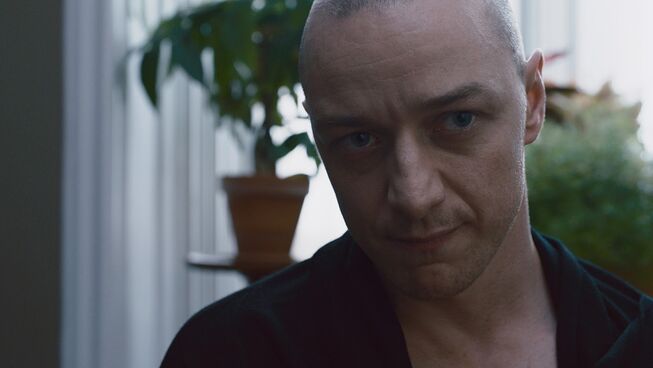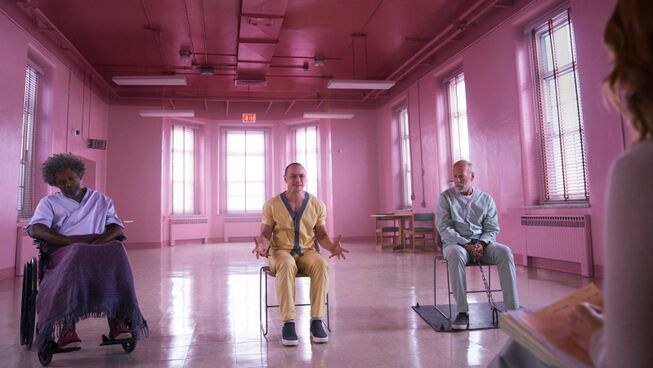
3 out of 5 stars
"Victim - The moment you tell everyone you have a mental disorder, in order to excuse your behaviour.” ― Shannon L. Alder
The best thrillers cut close to the realities of real life. Playing on the real fears of the audience and the possibility that the story could happen to them. M. Night Shyamalan's Split begins in a shopping centre carpark after a teen birthday party, where three teenaged girls are kidnapped and is the nightmare of every parent. They young women are taken to a windowless inhabitance by a mentally disturbed, but meticulous man named Kevin (James McAvoy). As the girls begin to assess their situation, determine if they can escape and how they should respond to their captor, everything changes. Each time he comes back to see them, Kevin has changed personality and physical appearance. They discover first hand the effects of Dissociative identity disorder (DID), previously known as multiple personality disorder (MPD) as each personality presents themselves. From Dennis, a meticulous maintenance man to an English woman and then to Hedwig, a nine year old Kayne West fan, they were merely three of his 24 personalities. The girls must determine how to escape before their introduction to the most powerful and vicious of the hoard, The Beast.
With a nod to Alfred Hitchcock’s Psycho and his usage of actual historical events as inspiration, M. Night Shyamalan (The Visit) derives his screenplay from the real life accounts of Billy Milligan. Delving into the world of mental illness and the realisation that the study of the human mind provides a multitude of considerations. The storyline exposes the challenges experienced by the patient and the responsibility of the medical professional in the process of diagnosing and assisting them. Abduction films and multiple personality disorder films have been done, but what lifts Split is the performances of James McAvoy, Anya Taylor-Joy and Shyamalan’s ability to gain a great performance from his lead actors. The celebrated and often maligned director proves that the investment into the central characters can make up for any weaknesses in the film.
The cat and mouse relationship that is played out between James McAvoy and Anya Taylor-Joy is captivating. Audiences do not have to be fans of the suspense thriller to appreciate the artistry of the layering of story and character development. This thematic tension can be credited to Shyamalan’s writing, but is masterfully delivered by the lead actors. The gradual revealing of the back stories of these characters is well-timed and provides the needed layers to bring the story to an acceptable conclusion. McAvoy is devastatingly captivating with the multitude of personalities and manages to project the charisma, terror and vulnerability that is needed for the each. His performance is balanced by the subtle strength of Taylor-Joy’s portrayal of Casey Cook. The eventual exposure to her family history provides the base for this unexpected victim who proves to be a convincing protagonist.
M. Night Shyamalan has proven to have a predictable style, but has managed to rise above his critics and less than convincing films from the past decade. Split does have its weaknesses, which can be found in the final minutes of the film. The logical progression to the conclusion does stretch believability, but as a low-budget thriller, it does does prove to be satisfying. For fans of the director’s earlier works, he provides a bridge to his better works that may cause some to cheer and others to grown. It is not his best work, but it does bring him back into the realm of celebrated film-makers.
REEL DIALOGUE: Why is there such a stigma with mental health?
Even with modern advancements and education, people still have a hard time knowing how to respond to the topic of mental illness. It is not new to the society, throughout the Bible there are references to individuals that struggle with these internal challenges. The realities portrayed in the Bible help to show that the answers can be found in the words of Jesus. God can help through the journey and know that it is better to seek help than to struggle alone.
Passages on mental illnesses: Psalm 34:17-20, Matthew 17:14-20, Philippians 4:6-7, 2 Timothy 1:7







